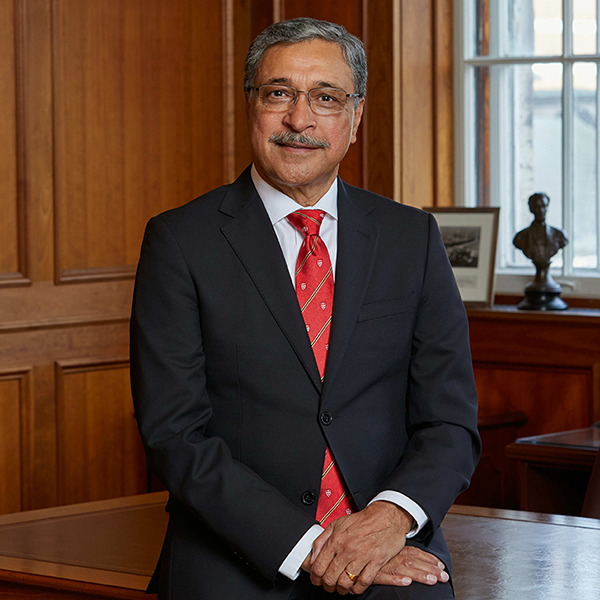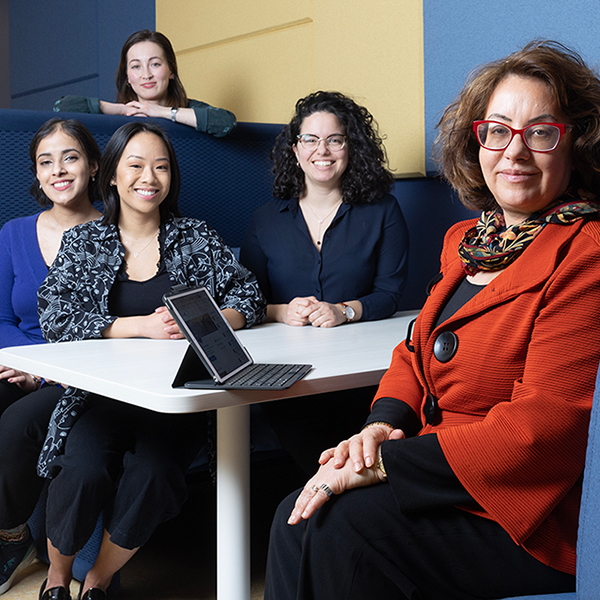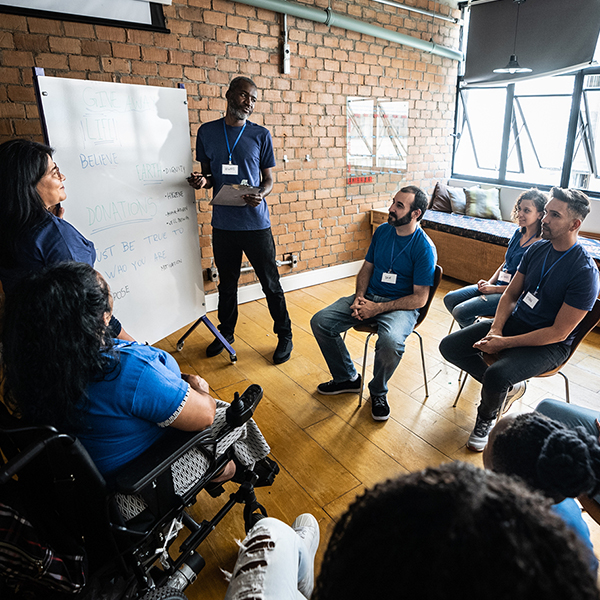An initiative to strengthen Indigenous education at McGill has received some vital support thanks to a US$1.25-million grant from the Andrew W. Mellon Foundation.
The generous grant will support the University’s new Indigenous Studies and Community Engagement Initiative.
The vision for the Initiative is for McGill to be the leading university east of Manitoba for Indigenous studies and education, says Provost and Vice-Principal (Academic) Christopher Manfredi.
“We have work to do to get to where we should be,” Manfredi acknowledges.
“But I think we’ve been making good progress…We want to be recognized as a welcoming place for Indigenous students, Indigenous faculty, Indigenous staff.”
The Mellon Foundation grant will help McGill expand its undergraduate program in Indigenous Studies, adding a major and honours programs to the existing minor program, which is a popular choice among students.
Moreover, the grant will help McGill support collaborative community partnerships across disciplines, provide travel funding for students and faculty for land-based research (field research in Indigenous communities), launch an annual public lecture series featuring Indigenous scholars and leaders, and fund new Indigenous Artist-in-Residence, Elder-in-Residence and Writer-in-Residence programs.
The Initiative will be put into place over five years, and is based in McGill’s Faculty of Arts.
“I think this is an important and exciting step in a long journey,” says Dean of Arts Antonia Maioni.
Provost Manfredi and Dean Maioni recently spoke about the impact of the gift and the new Indigenous Studies and Community Engagement Initiative.
The grant from the Andrew W. Mellon Foundation is McGill’s largest gift for Indigenous education. What impact will it have on the University?
Manfredi: I think this is a gift that will help us move forward in our aspiration to be the leading university east of Manitoba with respect to Indigenous studies and Indigenous education. It’s going to give us the capacity to develop in three areas: our engagement with the Indigenous community around Montreal, Indigenous land-based research and teaching, which will support our new Indigenous faculty that we’re hiring, and thirdly, we’ve been developing a very important expertise in the revitalization of Indigenous languages.
Maioni: It allows us to realize a project and vision that we were already building. The Mellon award allows us to incorporate what is already existing at McGill, which arguably are recent, but important initiatives, such as the minor program in Indigenous Studies, the new hiring that we’ve done in the field of Indigenous research across a variety of disciplines. And also in terms of the engagement and outreach that McGill is trying to increase and to make closer links to communities, especially in and around Montreal, but also across the country.
McGill wants to become the Eastern Canadian hub for Indigenous education. Why is that a natural fit for McGill and something that the university wants to do?
Manfredi: I think it’s a natural fit for us because, first of all, we are located very close to Mohawk communities, Kahnawake and Kanesatake. We have a strong connection to Indigenous communities in the North because our RUIS (Réseau Universitaire Intégré de Santé), the area covered by the University’s health and social services network, includes that area. And I think it’s just a matter of justice that universities take up the calls to action in the Truth and Reconciliation Commission report. I think McGill has a special responsibility to do that as a 200-year-old institution with strong connections to Indigenous people and Indigenous territory.
Maioni: Indigenous studies is something that is being developed across Canada, but certainly, it’s been a longer gestation period, I would say, west of Lake of the Woods. And the idea that McGill can kind of raise a flag [around] the idea that there is an importance to focus on Indigenous studies not just in Western Canada, but also in this part of Canada and that McGill wants to take a leadership role in doing that.
How does community partnership figure into this Initiative?
Manfredi: It’s very important. When we build our programming, I think we have to build it in collaboration with Indigenous communities. And the community engagement piece of this grant reflects that.
But I think it’s also reflected in the way we built the Bachelor of Education programs in Listuguj with the Mi’gmaq community and in Kahnawake with the Mohawk community. And we look to expand those. So it’s absolutely critical that we work hand-in-hand with Indigenous communities to make sure that what we do is meeting their needs.
The initiative is interdisciplinary. What might that look like?
Maioni: That’s the most exciting part of it is that it’s interdisciplinary in the sense that it will allow our Indigenous Studies program and activities, in terms of research and outreach, to build across different disciplines.
Off-campus courses in Indigenous communities will be part of the Initiative. What’s the rationale for that decision?
Manfredi: We don’t want McGill to be a bubble where people come to us. We also want to send our students out to be able to learn from that experience, whether they’re Indigenous or non-Indigenous.
How does this build off your Task Force on Indigenous Studies and Indigenous Education?
Manfredi: I think it’s a natural step for us to take after the task force [which] put forth 52 calls to action. Many of the things that will be done through the Mellon Foundation grant respond or are connected to those calls to action.
It’s another step in our progress. But I think it’s very important to point out, I think we’re doing this with humility. We rightly celebrate the Mellon Foundation grant, but we have to just keep on moving forward and recognize where we still have gaps and where we still need to fill in those gaps.


